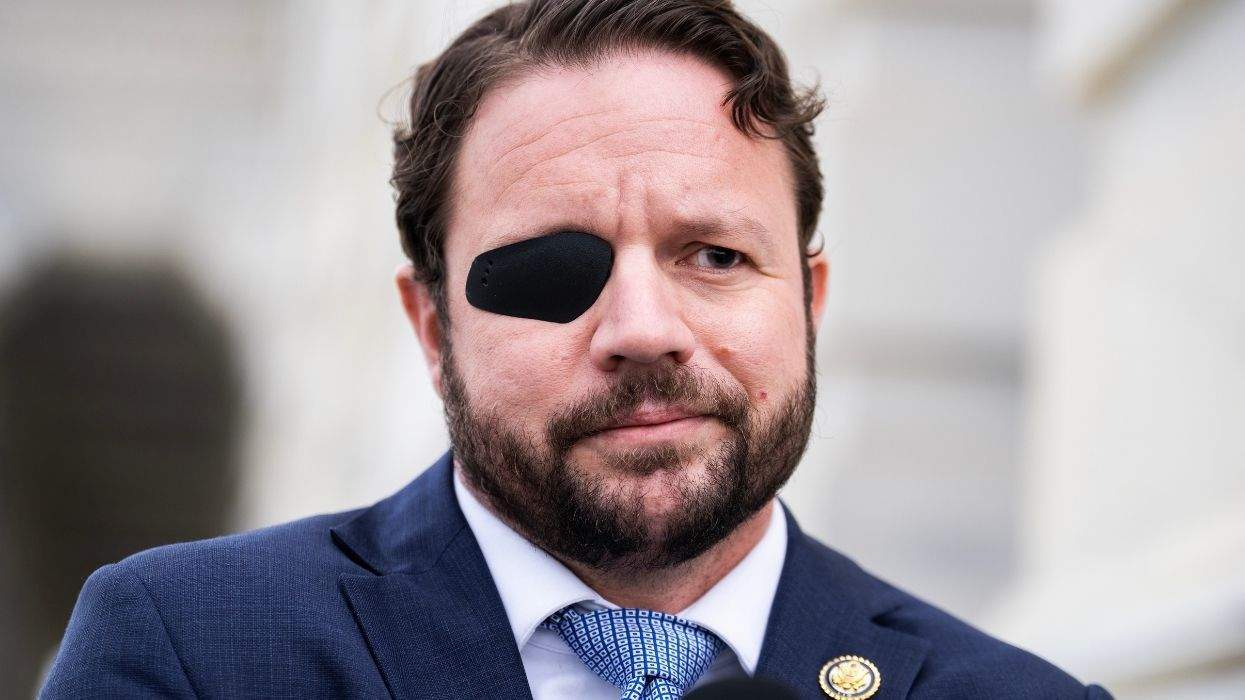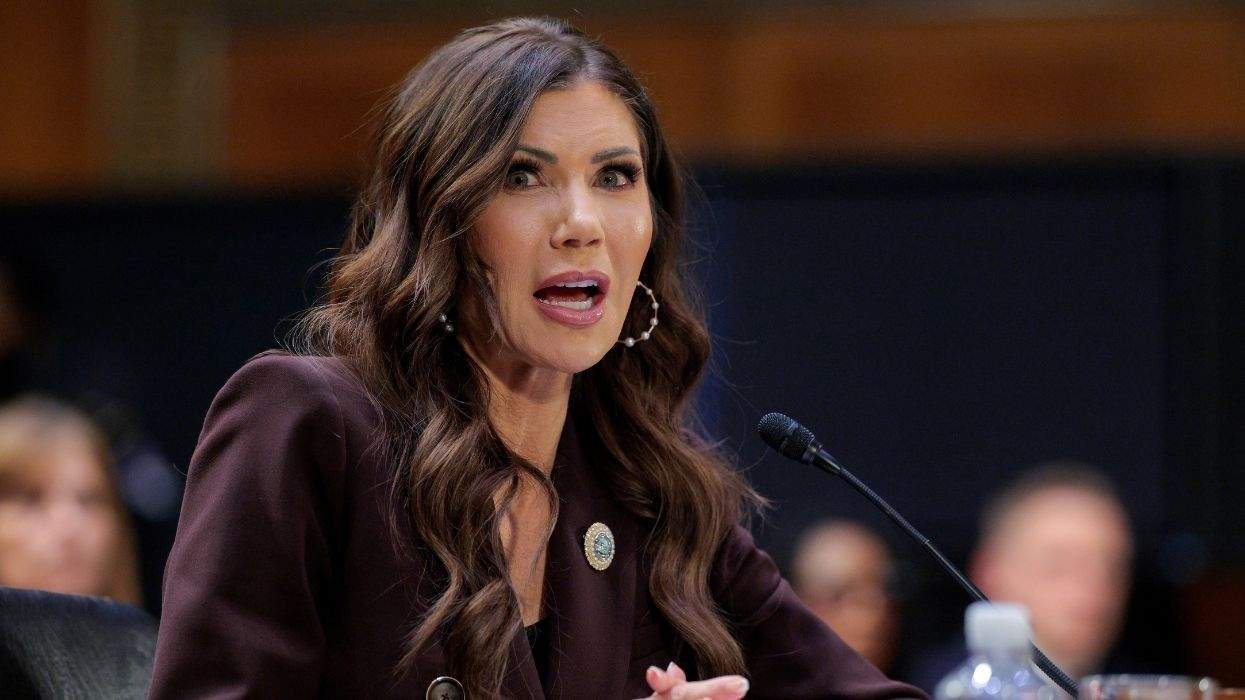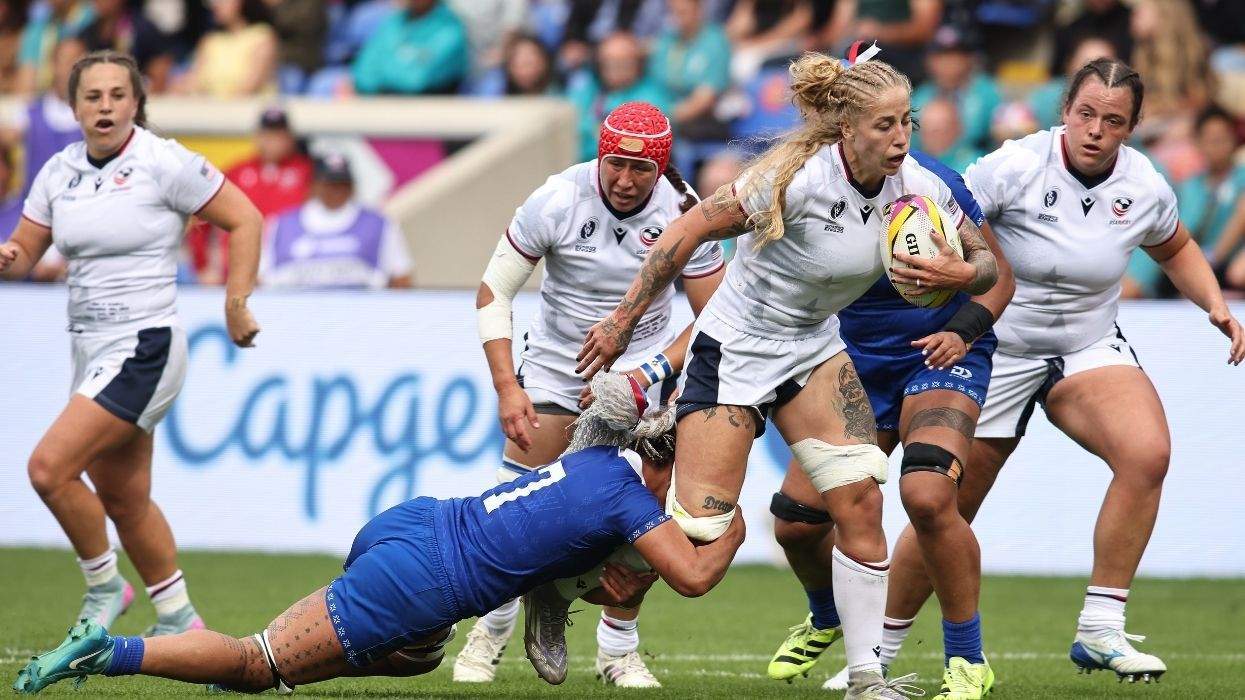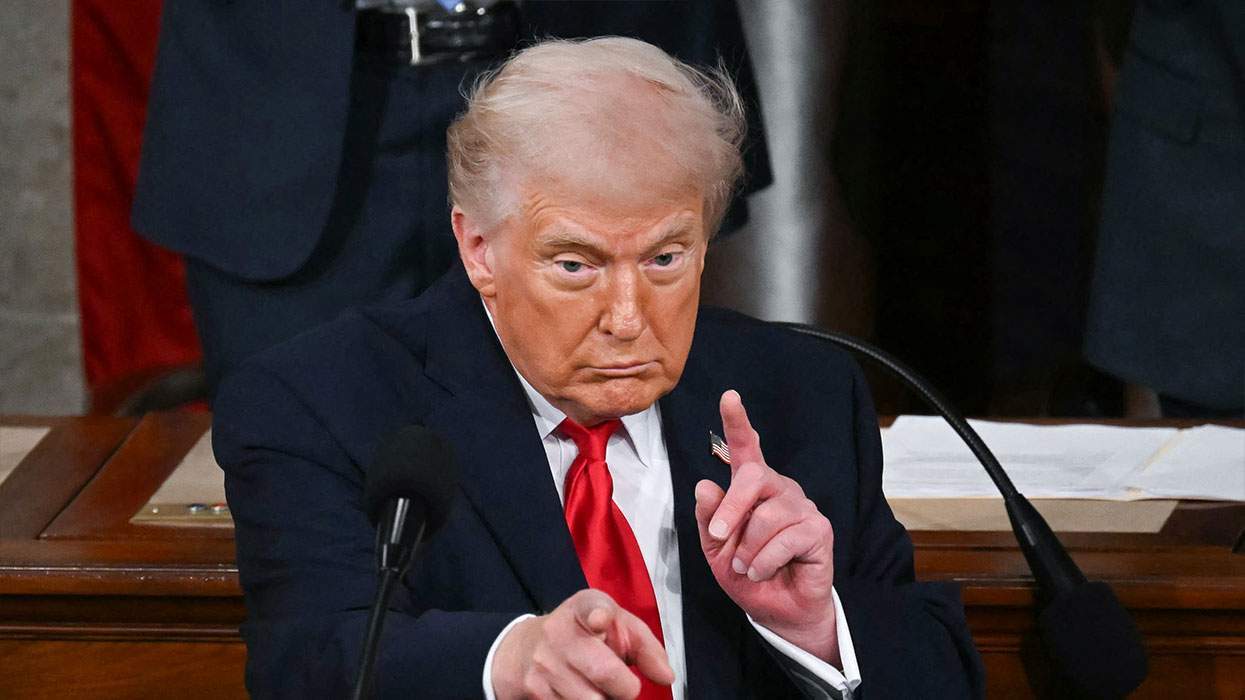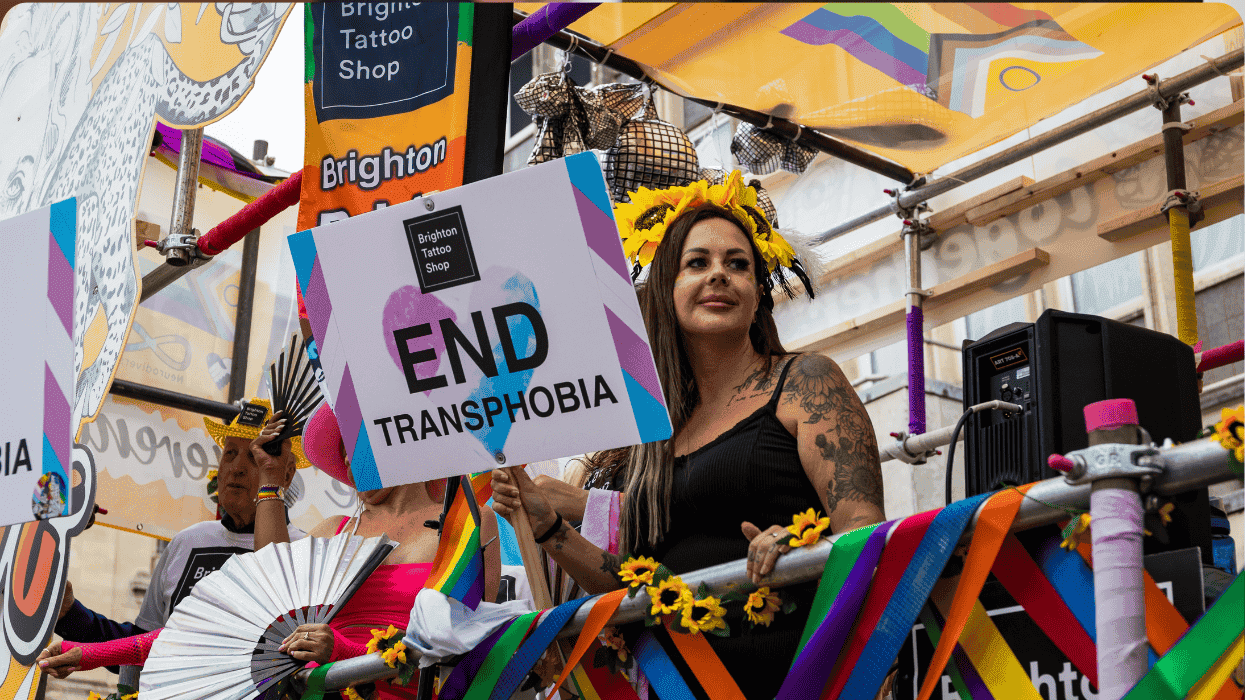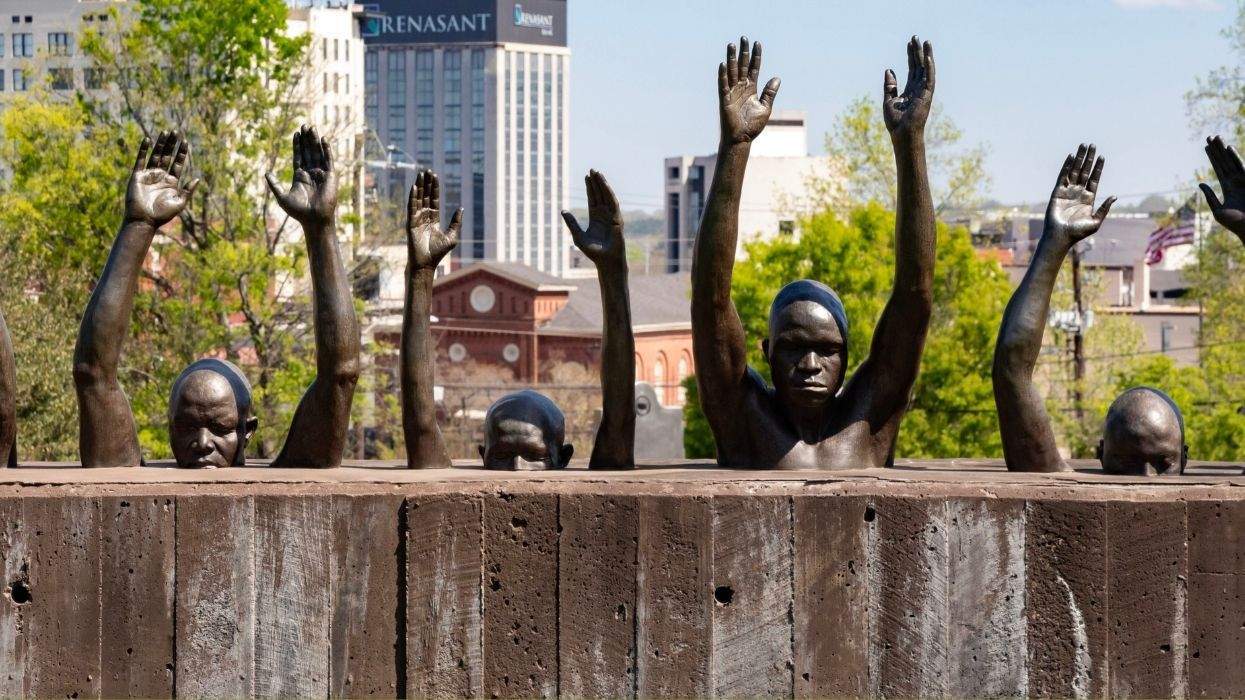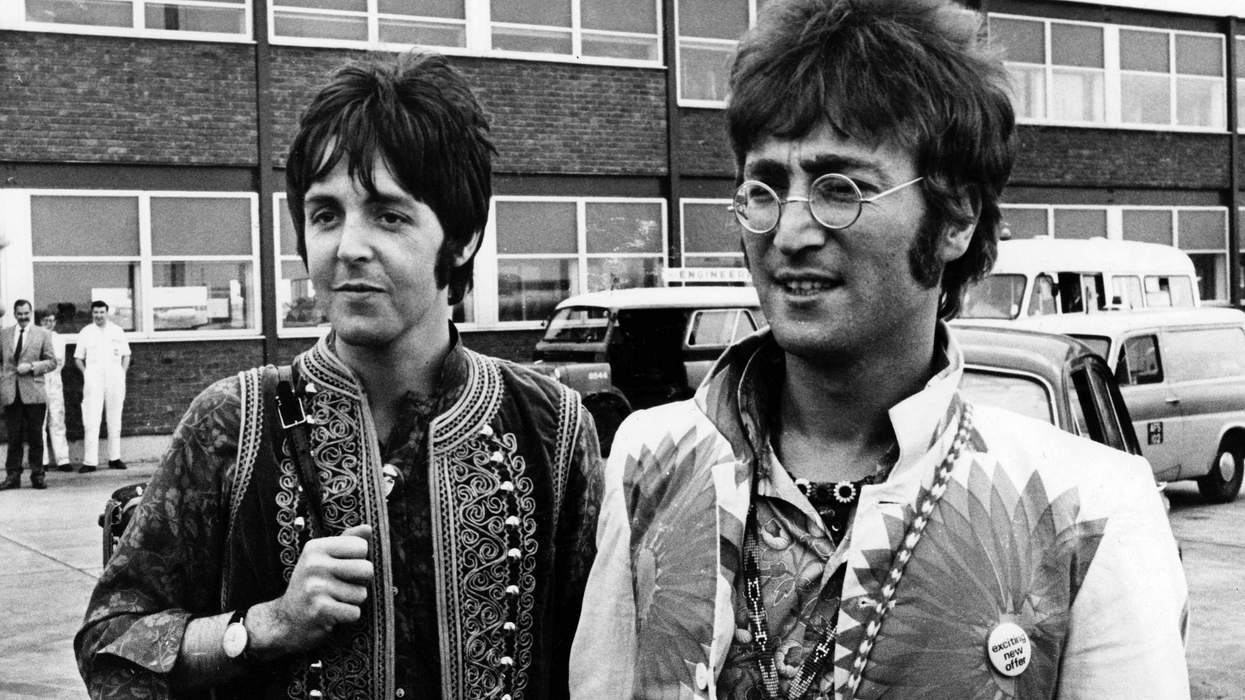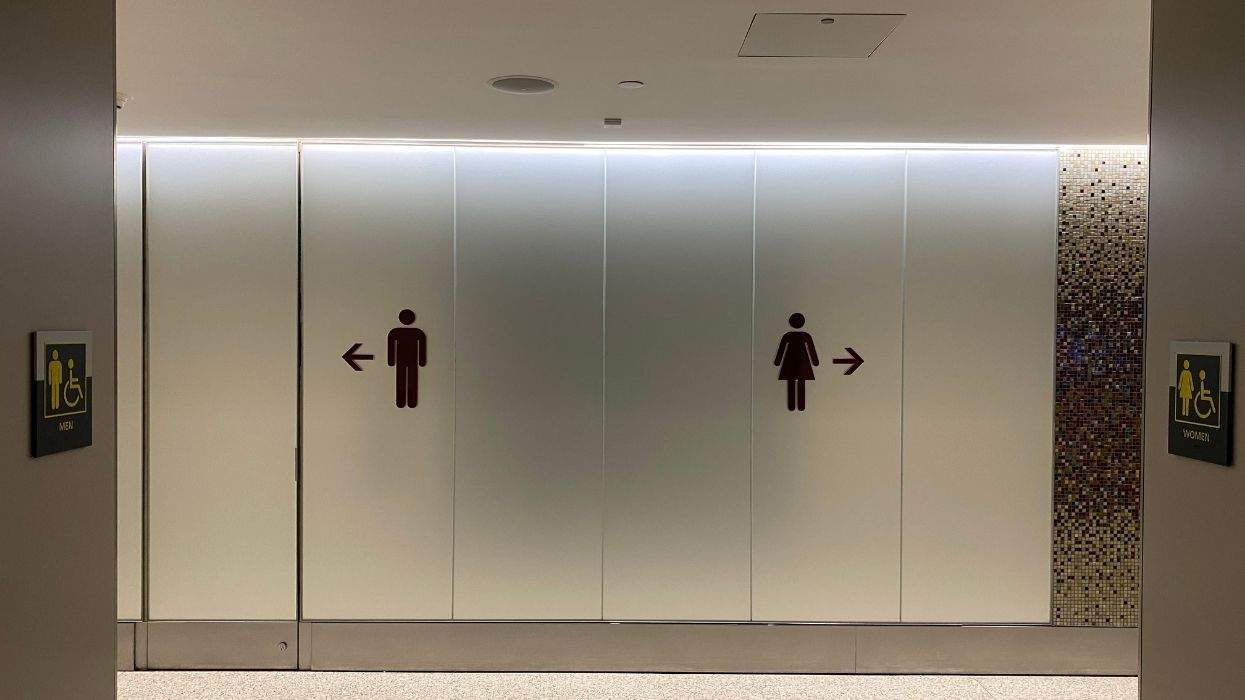The social media calls for a boycott of Rhys Ernst's debut feature, Adam, prompted impassioned conversations amongst the trans artists who converged in L.A. for Outfest last week. Adam was, in fact, a crowd favorite, premiered at Sundance, and continues to find audiences in advance of its theatrical release this month.
Ironically, it seems that many of Adam's detractors have not seen the film. The central qualm is that Ernst did not make a movie with a trans lead. Some critics claim that the protagonist's (Adam's) actions promote transphobia, and that the original text, Ariel Shrag's YA novel by the same name, is irredeemably transphobic and lesbian-phobic.
The critiques are well-addressed elsewhere. I am more disturbed by the defenses, as they reveal a flat and inadequate discourse surrounding trans filmmaking. Too many argue for Adam either because Ernst is trans, or because trans actor Leo Sheng plays a supporting role. These are low bars for critique.
So Adam doesn't provide the trans representation expected from Rhys Ernst's debut. Why should it? It is impossible to represent everyone, and I question the premise of this goal. The expectation of trans directors to represent our community and follow dogmatic casting policies creates standards that enforce cultural censorship and limit the richness and potential of our work. Adam tackles representation through the back door. Ernst directed transness on screen, with slippages, and I'm so glad he did.
The film is a coming-of-age tale about a cis teen who lives with his older sister for the summer in New York. He meets a cute girl, and goes along with her assumption that he's trans because he realizes that in this particular queer context, there is cultural capital attached to white transmasculinity. I was white and (soon to be) trans in the 2000s in NYC. The story speaks to me, and confronts me -- but I'm not in it.
I want to imagine a film culture in which filmmaking is trans not just for the characters portrayed on screen, but for how the story is told. Adam achieves this. What could be more trans than taking a story that has already been told, and retelling it? Who on these social media threads would dare to tell me that "what comes before" dictates the stories we tell in the future, the lives we live instead? Adaptation and translation are uniquely trans processes, and I look forward to more works by transgender artists that apply these approaches. How we tell our stories implicates how we are expected to explain ourselves, our bodies, our desires. Our stories are political, with or without a transgender protagonist.
In Adam, Ernst flips the "trans deception" narrative on its head. This reversal of the false notion that transgender identity involves lying, deception, or manipulation is a critical intervention into a trope that has been weaponized against trans people in cinema for decades. Intervention, like representation, are both valuable contributions from transgender artists, and neither requires a trans protagonist.
A film can be made about trans experience. A trans film is another story altogether.
Although we approach our work from different angles, the demands on Ernst to create a particular and narrow trans cinema impacts all trans filmmakers. I will release my first feature, Death and Bowling, in 2020. I worked with an almost entirely trans cast and crew to tell a story that is not about being trans. It takes up death, desire, and grief as a milieu of trans experience, feeling, and poetics.
The film makes no assertions about which actors/characters are transgender. If the world we live in can't handle Adam, it definitely can't handle my films either. It scares me to think that Adam might mark the limit of what queer audiences are ready for today (take a look at our cinematic history, or any film by John Waters or Rainer Werner Fassbinder, and you'll see my point). This limit is a scary comment on our times, and should not be taken lightly.
When I watch Adam, I see a cis boy attempt and ultimately fail at performing transmasculinity. When he succeeds, or "passes," I find it pleasurable to see affect, gesture, and cultural cues that are so familiar to me performed by a cis actor. In the world of Adam, cismasculinity is not the normative standard. "Am I trans enough?" "What does my masculinity look like to the community around me?" "Am I doing this right?" These are the questions for Adam, and I'm so relieved they aren't the questions for a trans protagonist (I would not want to watch that film). I would feel differently had Ernst not directed Nicholas Alexander's performance -- for sure. But identification is complex, and often has very little to do with authenticity.
Alexander's performance of Adam implies a non-essentialism to transness, just as trans lives have confirmed a non-essentialism to the gender binary. This is powerful, and has nothing to do with representation. If we place didactic rules on trans directors out of fear that they will replicate painful cis portrayals of trans experience, we lose out on the magic of filmmaking to use creative performance and casting to open new ways of thinking, feeling, and seeing transness.
Does Rhys Ernst have a responsibility to his audience? Yes. Should we be critical of his work? Yes. But I dream of a richer dialogue, one that seeks a cinema resistant to the myopic calls for representation evident at LGBT film festivals. Film can and should offer more than the promise of visibility and (the dubious notion) of authenticity. Representation falsely announces shifts in power that have not actually occurred. The tokenization of trans people will not be the harbinger of the end of transphobic violence. Representation is not the same as liberation.
Due to a scarcity of industry entry points for transgender writers and directors (studios, if you're reading this, stop organizing panels for us and hold a job fair!), trans viewers understandably want to see the films they so crave from the few filmmakers who have opportunities to make work. But remember: trans filmmakers are not nonprofit organizations. We need freedom to make creative decisions, to take risks, to fail, to surprise, to move audiences, and to make work outside of our experience as transgender people.
If you didn't like Adam, that's valuable. Boycotts and censorship, however, are dangerous responses. If you want to see your version of trans cinema on the big screen, it may be time to write your first script. I look forward to supporting you, arguing with you, and screening with you. I expect some of you will love my films, and some of you will hate them. I'm OK with that. A rich, diverse, queer art culture is impossible without both types of audience.
So: critique us for our camera work, mise-en-scene, and storytelling devices. Tackle our ideas, ask new questions. Respond with anger, love, inspiration, numbness. Get turned on, get turned off. Walk out of the theatre wiping your eyes and catching your breath. Challenge us, but do not censor us. Trans artistic freedom is at stake. We need risk-taking work like Adam now more than ever, and I hope the dialogue around Rhys Ernst's film creates space for the bigger risks, the raunchier films, and the increasingly complex stories of the trans cinematic near-future.
Lyle Kash is the filmmaker of Death and Bowling. Follow him on Instagram @queerelle.

